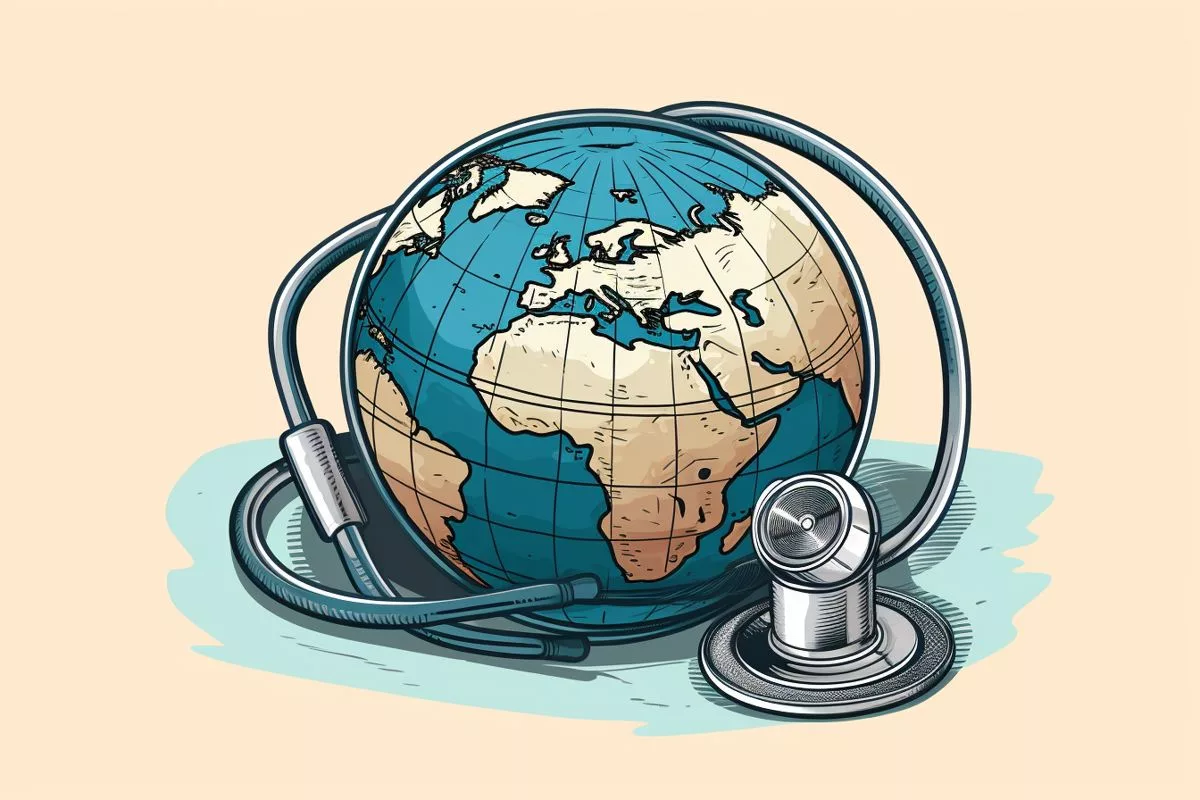South Africa’s National Health Insurance (NHI) aims to provide comprehensive healthcare services to all citizens without financial stress. The innovative approach to funding will level the disparity between private and public sectors. The NHI also seeks to transform the pharmaceutical sector, improve quality, and address disparities. Despite facing challenges, the NHI is a significant juncture for South Africa as it moves towards making healthcare a common asset for all citizens.
South Africa is on the verge of revolutionizing its healthcare system with the proposed National Health Insurance (NHI), which aims to ensure that every citizen has access to a comprehensive range of healthcare services without financial strain. This initiative is not only a reaction to a constitutional right secured in Section 27 but also a step towards bridging the gap between the private and public sectors.
A Novel Approach to Funding
The NHI’s primary source of funding is general taxation, along with potential contributions from income and payroll taxes. This innovative approach is aimed at leveling the existing disparity between the private and public sectors.
Addressing Disparities and Improving Quality
The NHI initiative has been trialed in key districts since 2012, seeking to address disparities in healthcare availability and access. However, accreditation of health facilities is crucial for making this vision a reality, and maintaining quality and standards is non-negotiable. A massive revamp of primary healthcare services is on the cards, with a particular focus on bolstering district health systems and community outreach.
Transforming the Pharmaceutical Sector
The NHI also foresees a significant transformation in the pharmaceutical sector. The main aim is to centralize the procurement process to ensure not only the availability but also the affordability of medications. The information systems too are set for a significant overhaul, which is integral to streamline service delivery and reimbursements.
Challenges Ahead
The NHI faces various challenges, such as preparedness to allocate resources, a shortage of healthcare professionals, and the sustainability of funding. While some hail this initiative as a game-changer, others cast shadows of doubt and skepticism.
A Significant Juncture
Amidst these critical conversations, a deluge of tweets about the inconsequentialities of life and global tech trends serve as reminders of the diversity of world opinions. With the NHI bill stirring intense debates, South Africa finds itself at a significant juncture, mulling over a future where healthcare is a common asset rather than a luxury.
The NHI signifies progress and change towards a common asset for healthcare in South Africa. As the discourse carries on across Cape Town and further afield, only time, dedication, and collective effort will unravel the answer to whether the NHI will be able to maneuver through the intricacies and come out victorious.
1. What is South Africa’s National Health Insurance?
South Africa’s National Health Insurance (NHI) is an initiative aimed at providing comprehensive healthcare services to all citizens without financial stress. It seeks to level the existing disparity between the private and public sectors and transform the pharmaceutical sector to improve quality and address disparities.
2. How is the NHI funded?
The NHI’s primary source of funding is general taxation, along with potential contributions from income and payroll taxes. This innovative approach is aimed at leveling the existing disparity between the private and public sectors.
3. What changes will the NHI bring to the pharmaceutical sector?
The NHI foresees a significant transformation in the pharmaceutical sector. The main aim is to centralize the procurement process to ensure not only the availability but also the affordability of medications. The information systems too are set for a significant overhaul, which is integral to streamline service delivery and reimbursements.
4. What challenges does the NHI face?
The NHI faces various challenges, such as preparedness to allocate resources, a shortage of healthcare professionals, and the sustainability of funding. While some hail this initiative as a game-changer, others cast shadows of doubt and skepticism.
5. What is the significance of the NHI for South Africa?
The NHI is a significant juncture for South Africa as it moves towards making healthcare a common asset for all citizens. It is not only a reaction to a constitutional right secured in Section 27 but also a step towards bridging the gap between the private and public sectors. The NHI signifies progress and change towards a common asset for healthcare in South Africa.












